Experts Share the Best Trick to Boost Your Energy Without Caffeine

Does drinking too much caffeine have you stuck on an energy roller coaster? “If you were to have a cup of coffee, then you have this high. But just like anything else that goes really really high, it then eventually drops,” clinical nutritionist Dr. Nancy Rahnama tells CNBC Make It. “So, then the person is going to go and have their second cup of coffee.” If you’re trying to cut back on caffeine but still want to keep your energy levels up, here are some great tips for getting a boost, no java needed.
RELATED: Drink Coffee When You’re Sleep Deprived?
Get Moving
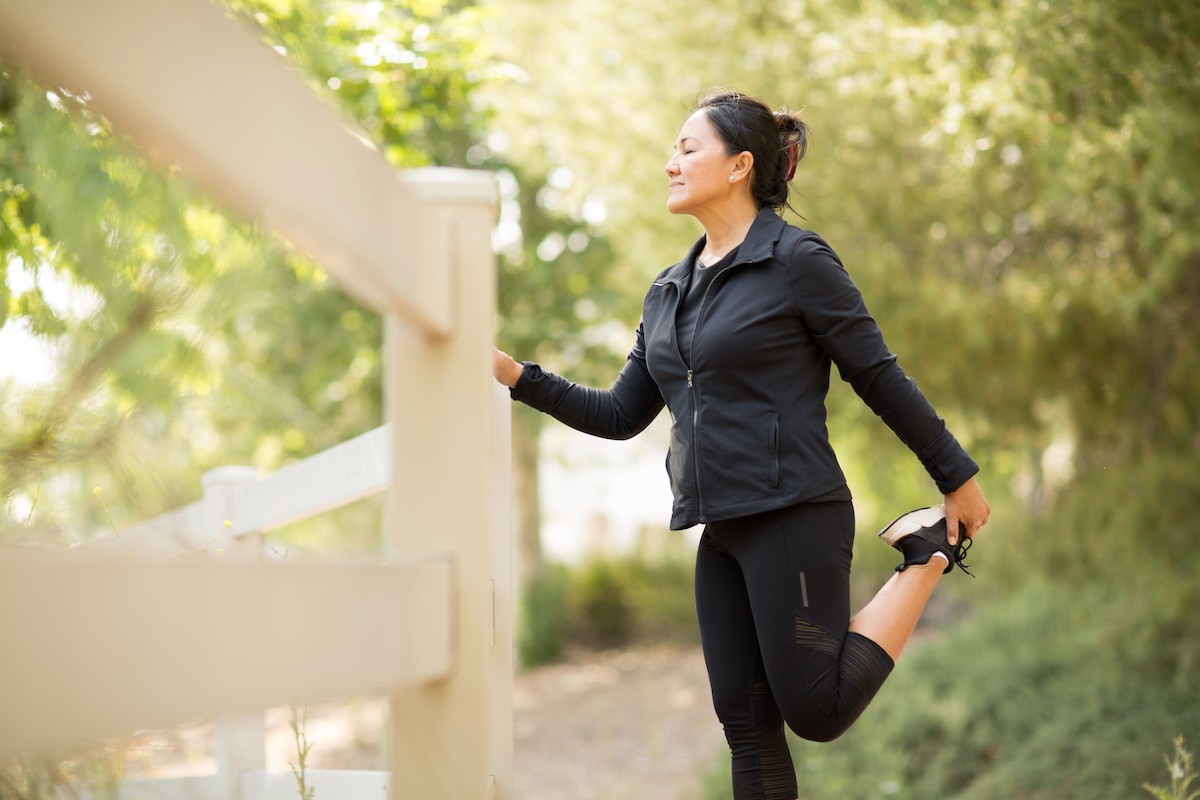
Exercise is a highly effective method of getting some non-caffeinated pep in your step. “Exercise, even just a quick walk, can be a great way to boost your energy,” family medicine physician Anna B. Shannahan, MD, tells Northwestern Medicine. “Exercise tells your cells you need more energy, your body will rise to the occasion and provide you with more. It also triggers the release of endorphins and a chemical called norepinephrine, which helps you feel awake and alert. Studies are still being conducted about the chemicals tied to feelings of well-being (sometimes referred to as “runner’s high”). But we know norepinephrine, endorphins and other chemicals all play a role.”
Eat Energy-Boosting Foods
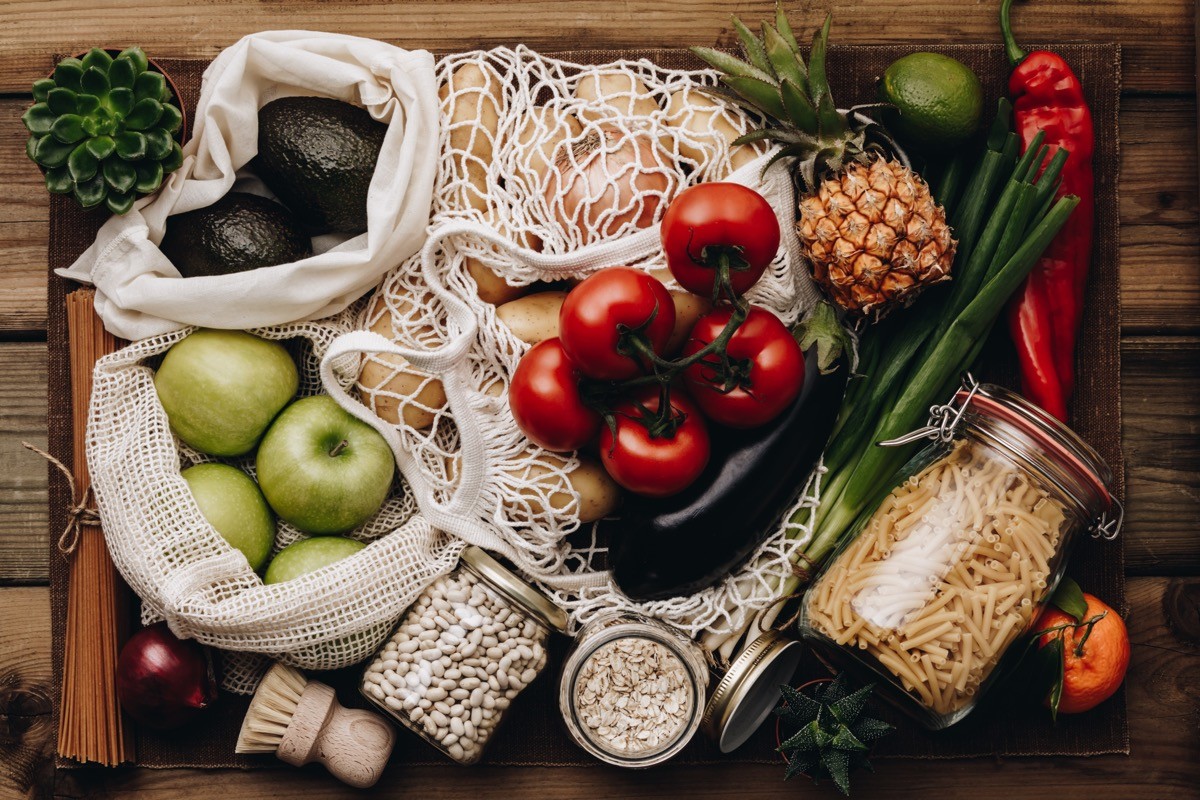
Eating the right foods can keep your energy levels steady all day. “Eating foods with a low glycemic index — whose sugars are absorbed slowly — may help you avoid the lag in energy that typically occurs after eating quickly absorbed sugars or refined starches,” says Harvard Health. “Foods with a low glycemic index include whole grains, high-fiber vegetables, nuts, and healthy oils such as olive oil. In general, high-carbohydrate foods have the highest glycemic indexes. Proteins and fats have glycemic indexes that are close to zero.”
Healthy Snacks
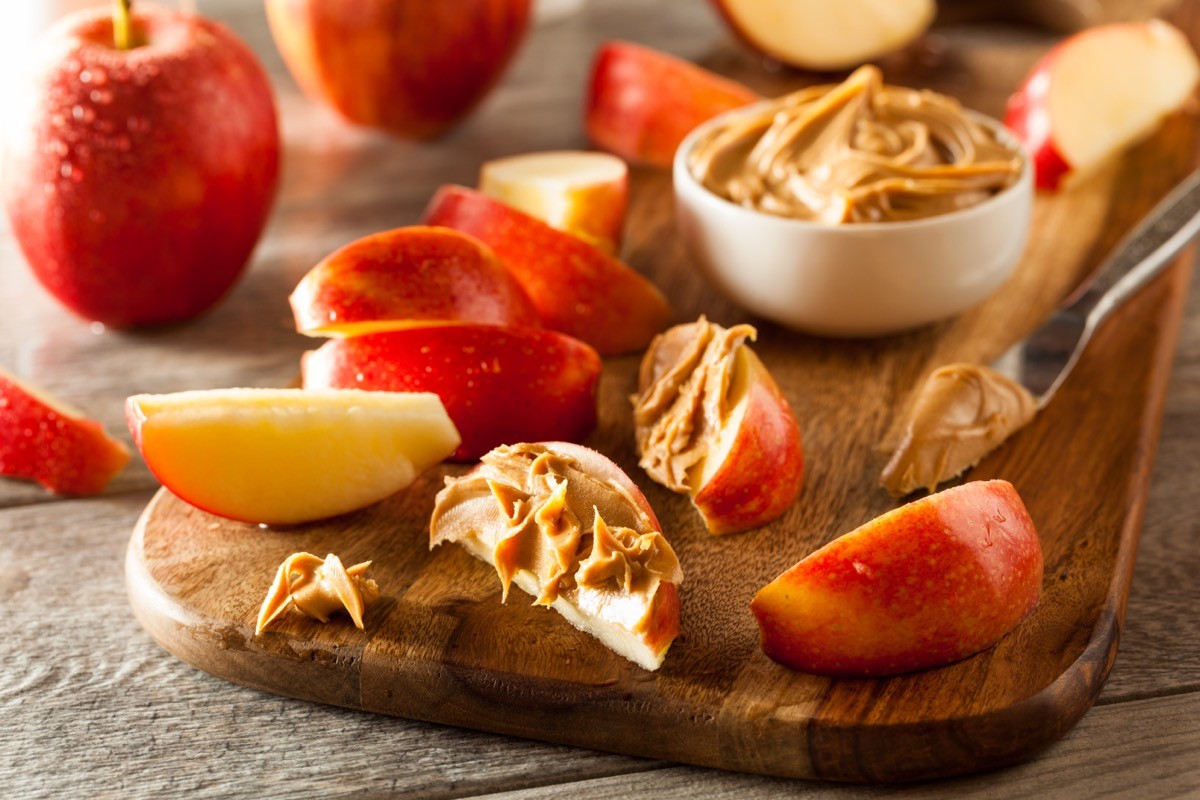
Keep energy levels steady with healthy snacks. “Energy without caffeine is possible!” sleep medicine physician Dr. Chester Wu tells Rise Science. “Try grabbing a healthy snack like an apple and peanut butter or Greek yogurt instead of a coffee. For the biggest energy boost, focus on catching up on lost sleep, either by getting an early night or taking a short afternoon nap.”
Stay Hydrated
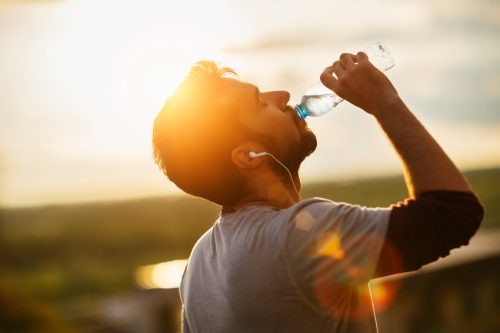
Drinking water can help you fight fatigue. “What’s the only nutrient that has been shown to enhance performance for all but the most demanding endurance activities? It’s not some pricey sports drink. It’s water,” says Harvard Health. “If your body is short of fluids, one of the first signs is a feeling of fatigue.”
RELATED: 25 Ways to Boost Your Energy Without Coffee.
Sensible Sleep Habits
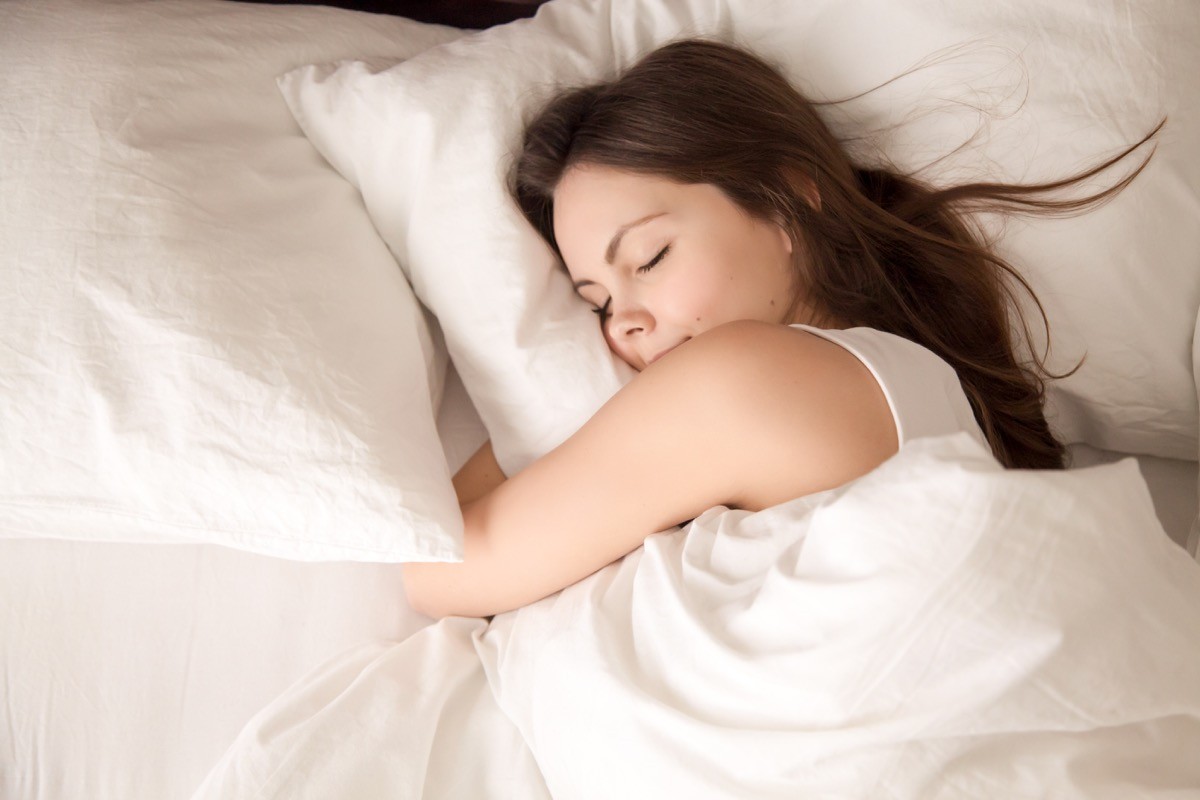
Getting enough good quality sleep will set you up for success without caffeine being necessary. “One of the best things you can do to get more energy is to make sure you’re getting enough sleep,” says Dr. Wu. “If you’re feeling tired all day long, you may not be getting enough. Try heading to bed 15 minutes or so earlier or squeezing in a few afternoon naps over the next few weeks to see if that makes a difference to how you feel.” If you’re struggling with sleep and don’t like/want to take melatonin, try a sleep aid like MoonBrew which encourages natural relaxation.
Avoid Alcohol
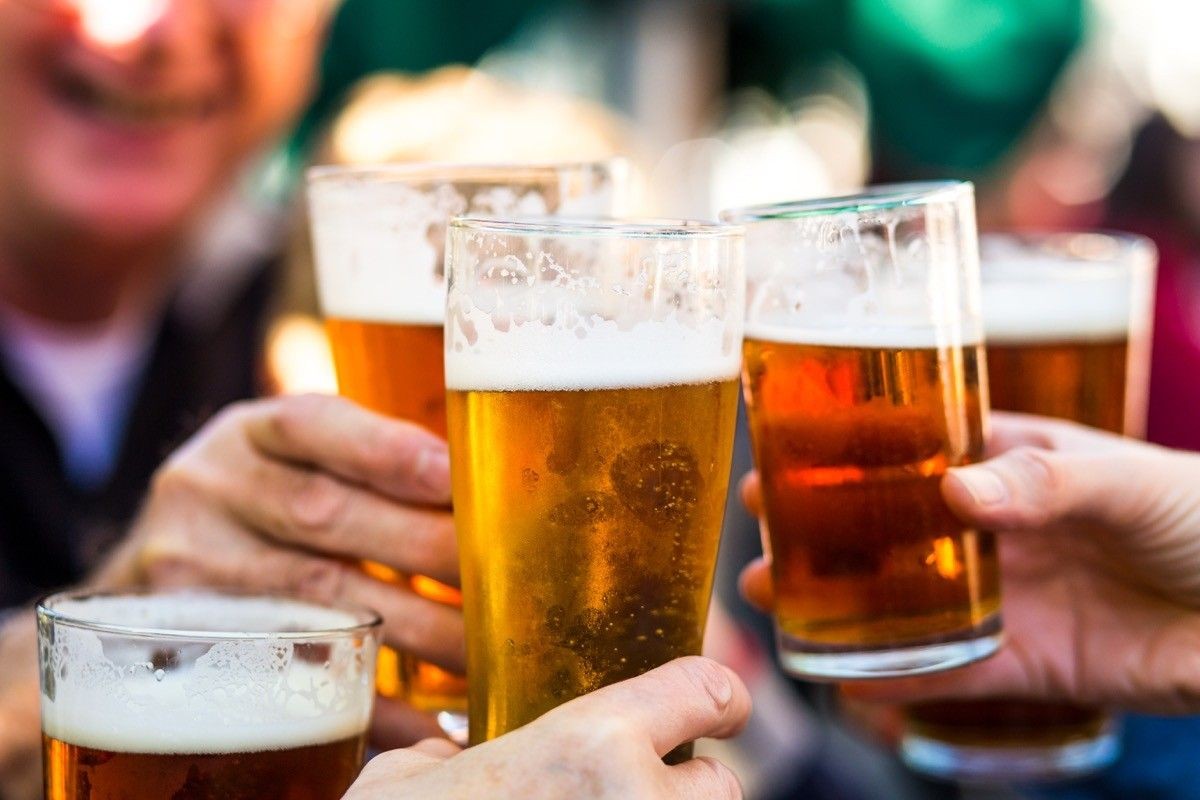
Drinking alcohol can do a number on your energy levels—avoid it to stay alert and energized. “One of the best hedges against the midafternoon slump is to avoid drinking alcohol at lunch,” says Harvard Health. “The sedative effect of alcohol is especially strong at midday. Similarly, avoid a five o’clock cocktail if you want to have energy in the evening. If you’re going to drink, do so in moderation at a time when you don’t mind having your energy wind down.”
Breathing Techniques
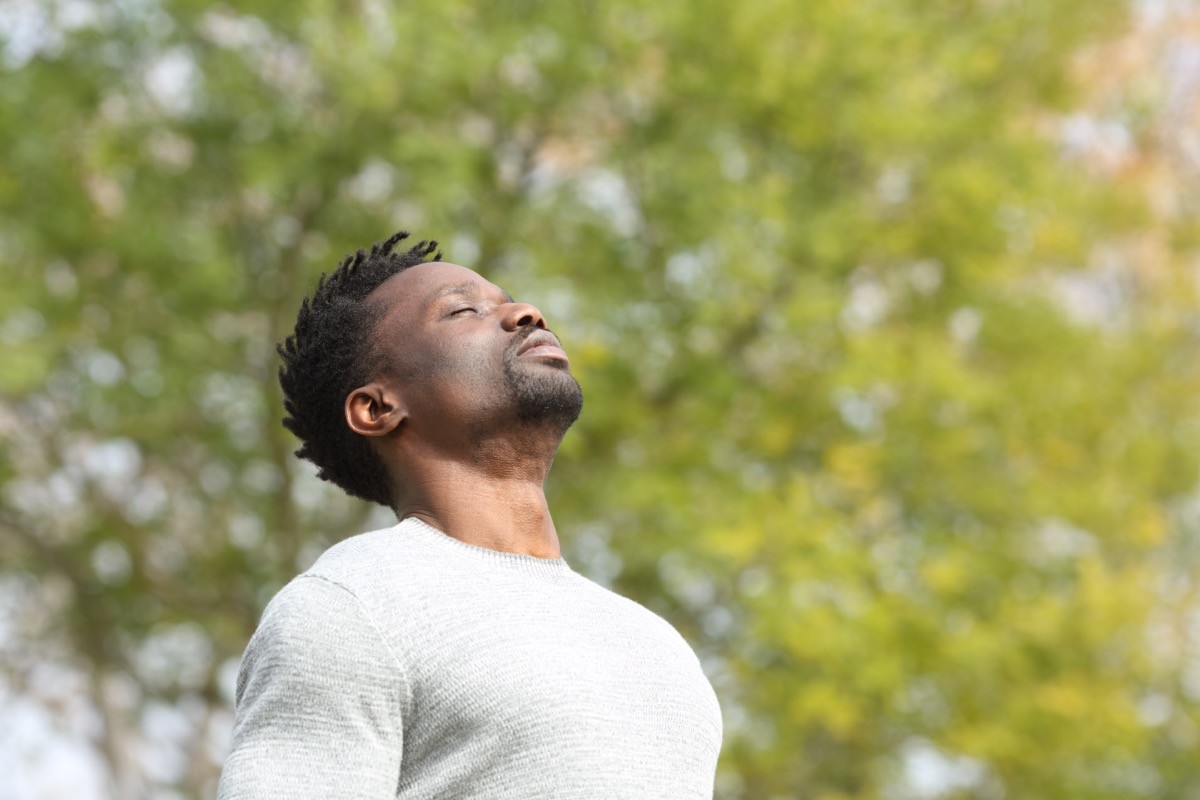
Breathwork can help boost energy. “A technique called double breathing can help boost alertness by exciting the sympathetic nervous system,” according to Cigna. “To try it, simply inhale through your nose, starting with a short, sharp inhalation and ending with a longer one. Then exhale through your mouth using that same pattern. Repeat five times with a short break.”